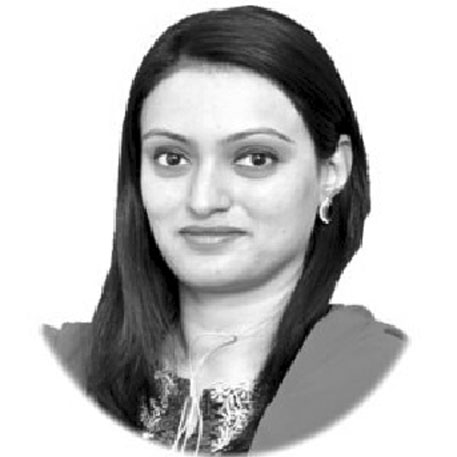Reema Shaukat
GENERALLY speaking, elections in Pakistan are labelled as rigged and biased. Whichsoever, party loses put blames on other and then a long debate goes on who is right and who is wrong. Recently, conducted were the elections in (erstwhile) FATA, a landmark in history of Pakistan as it was never thought that peace will be restored in this out-of-bound area for decades and people will get their right to vote and choose their representatives. FATA was considered as a no go area decades ago as the colonial powers introduced Frontier Crimes Regulation for this area. According to FCR, a political agent would be responsible to look after the administration of the area and work as a connexion between tribal heads, local populace and colonists. However, it proved difficult for the colonial government to establish its writ in the tribal areas and the introduction of laws were named as black laws as they were without any justification.
British vacated the subcontinent but left their imprints and despite being part of Pakistan, people of FATA still feel underprivileged. Under the Constitution, FATA is included among the territories of Pakistan (Article 1). It is represented in the National Assembly and the Senate but remains under the direct executive authority of the President (Articles 51, 59 and 247). Laws framed by the National Assembly do not apply here, unless ordered by the President, who is also empowered to issue regulations for the peace and good governance of the tribal areas. Today, FATA continues to be governed primarily through the Frontier Crimes Regulation 1901. It is administered by the Governor of the Khyber Pakhtunkhwa (KP) in his capacity as an agent to the President of Pakistan, under the overall supervision of the Ministry of States and Frontier Regions in Islamabad. Earlier in 2017, FATA Reforms Committee, approved the proposals for administrative structure of FATA and FCR. The main feature of the reforms package is scraping of FCR and replacing it with Riwaj Act under which a judge of the court will be empowered to form a Committee of local elders to resolve disputes among people. The proposals approved by the federal cabinet also included complete rehabilitation of temporarily displaced persons (TDPs) of FATA and spending 3 per cent share of FATA in the National Finance Commission (NFC) Award and other development funds by the federal government for the next 10 years. The FATA Reforms Committee mentioned in its report that people from every tribal region wanted merger with KP and also presented arguments in favour of the merger. One reason was that FATA will make visible development within five years if the package of Rs110 billon is spent there judicially.
The purpose of proposing five-year transition time is to give the FATA people ample time to think whether they want merger with KP on permanent basis or not. The most striking feature of the reforms is extension of courts’ jurisdiction to FATA without disturbing the traditional Jirga system. The reforms report mentioned that FATA is least developed area of the country, therefore, the KP Governor along with a team of experts and other officials will make 10-year development plan for the region. The purpose of the plan will be to strengthen administrative structure, mineral development, healthcare, education and industries. The reforms envisaged Provincial Assembly polls in FATA in the 2018 elections, local bodies’ polls and spending of 30 per cent development funds through the elected representatives. The year 2018 was great news for FATA as the merger with KP was finally signed.
Recently, held were the elections for KP provincial assembly in FATA where merged tribal districts and frontier regions having around 2.801 million registered voters used their right to vote and elect 16 lawmakers from their respective areas. Held in completely safe and sound environment, with great voters turnout and all necessary arrangements were made sure by the Election Commission of Pakistan in Khyber, Bajaur, Mohmand, Kurram, Orakzai, North Waziristan and South Waziristan and frontier regions. Free and Fair Election Network (FAFEN) in their recent report has declared the historic elections in FATA as peaceful and free from any major controversy over the quality of the electoral process. According to FAFEN, the historical elections in areas that were embroiled in conflict for almost two decades remained peaceful and free from any major controversy over the quality of the electoral process.
It is pertinent to note that electoral process in Pakistan has often remained controversial in the past. Likewise same is said about general election 2018 where political parties in opposition blame of vote engineering. As different monitoring teams, both foreign and local media, and independent observers are invited to monitor and assess the elections. Similarly, in the general election of 2018, Commonwealth Observer Group described Pakistan’s GE-2018 as an important milestone. It commended the voters, the Election Commission, polling staff, political parties, candidates, their agents and the security forces for their respective roles in conduct of elections. Ex Indian Chief Election Commissioner, Shahab ud Din stayed in Pakistan during elections as member of the Commonwealth Observer Group and dismissed allegations of rigging and termed them absolutely credible, free and fair. Likewise FAFEN and PILDAT both gave credible reports on transparency in elections.
Hence all such political parties that are raising allegations on electoral system must move ahead for betterment of Pakistan and leave political moves aside for betterment of Pakistan. FATA suffered more during war against terrorism and presently peace is restored, with the efforts of security forces, where thousands of terrorists were wiped out along their safe havens, millions of dollars in foreign currency recovered and explosives were seized, local populace equally suffered the impact of war. Now it’s the duty of all stakeholders and political parties in Pakistan to come forward for sustainable development in all areas.
—The writer is Assistant Professor, IIUI, Islamabad.









